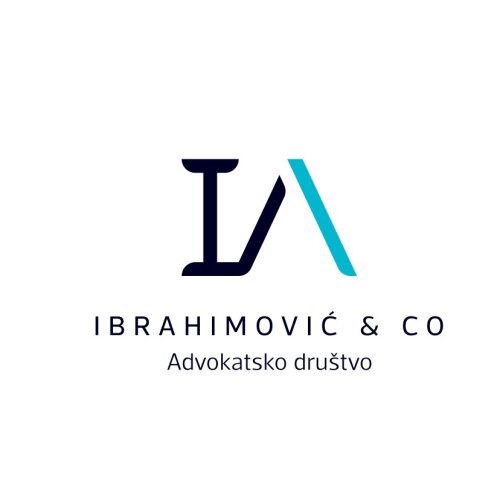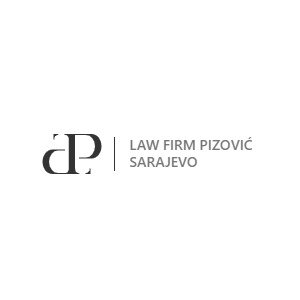Best Renewable & Alternative Energy Lawyers in Sarajevo
Share your needs with us, get contacted by law firms.
Free. Takes 2 min.
List of the best lawyers in Sarajevo, Bosnia and Herzegovina
About Renewable & Alternative Energy Law in Sarajevo, Bosnia and Herzegovina
The rise in environmental consciousness and the need for sustainable energy solutions have made renewable and alternative energy a growing sector in Sarajevo and throughout Bosnia and Herzegovina. This field encompasses the development, regulation, and use of energy sources such as solar, wind, hydroelectric, biomass, and geothermal energy. Given the country's unique administrative structure and its aspirations toward EU integration, renewable and alternative energy initiatives are subject to both national and entity-level regulations. These laws cover a wide range of issues, including permits, land use, subsidies, environmental impact assessments, and grid connection procedures.
Why You May Need a Lawyer
Engaging in renewable and alternative energy projects can be challenging given the complex regulatory environment in Bosnia and Herzegovina. Common situations where individuals or companies may need legal assistance include:
- Navigating the permitting process for new energy projects
- Securing land use rights for installing solar panels or wind turbines
- Understanding and securing government incentives or subsidies
- Negotiating power purchase agreements and interconnection contracts
- Ensuring regulatory compliance with local, entity, and state-level laws
- Resolving disputes with regulatory bodies or utility companies
- Structuring joint ventures or partnerships with local and foreign investors
- Addressing environmental compliance and community impact requirements
A lawyer with expertise in renewable and alternative energy law can help avoid costly mistakes, minimize risks, and ensure your project proceeds efficiently.
Local Laws Overview
The regulatory framework for renewable and alternative energy in Sarajevo is shaped by the decentralized governmental structure of Bosnia and Herzegovina. Key aspects include:
- Permitting: Both state and entity-level authorities issue permits for energy projects. The procedure may involve environmental assessments and community consultations.
- Incentives: Various incentives are available, such as feed-in tariffs for renewable energy producers and grants for project development. These are regulated mainly at the entity level (Federation of Bosnia and Herzegovina and Republika Srpska).
- Grid Connection: Rules for connecting renewable energy sources to the electricity grid are regulated by state and entity-level transmission system operators.
- Environmental Protection: Projects must comply with environmental regulations, including obtaining appropriate assessments and ongoing monitoring.
- Foreign Investment: Foreign investors have certain protections but must adhere to local ownership and regulatory requirements.
- Licensing: All operators must obtain proper operating licenses from the Regulatory Commission for Electricity, either at the state or entity level.
Legal advice is essential for understanding which regulatory path applies to your project and for managing relationships with the relevant authorities.
Frequently Asked Questions
What types of renewable energy projects are most common in Sarajevo?
Solar and small-scale hydropower projects are the most common, followed by wind and increasingly, biomass initiatives.
Who issues permits for renewable energy projects?
Permits may be required from several authorities, including municipal offices, the Federal Ministry of Energy, Mining and Industry, or the environmental agency, depending on the project's size and location.
Are there financial incentives for renewable energy in Bosnia and Herzegovina?
Yes, there are feed-in tariffs and other subsidies, mostly governed at the entity level, to encourage the development of renewable energy sources.
What are the main environmental requirements for my project?
Most projects require an environmental impact assessment and must follow ongoing environmental monitoring and reporting rules set by the authorities.
Is it possible for foreign investors to participate in renewable energy projects?
Yes, foreign investors are welcome, provided they comply with local ownership limits and regulatory approvals.
How long does the permitting process usually take?
The process can take several months or even longer, depending on the type and complexity of the project, and may involve multiple agencies.
Can I sell surplus energy back to the grid?
Yes, many renewable energy producers can feed surplus electricity into the grid, but this requires a power purchase agreement and compliance with grid connection rules.
What legal structures are commonly used for renewable energy projects?
Limited liability companies and joint ventures are often used, especially for larger projects or those with foreign investment.
What risks should I be aware of with renewable energy projects?
Potential risks include regulatory delays, changes in incentive schemes, contractual disputes, and compliance challenges with environmental regulations.
How do I resolve disputes with government agencies or grid operators?
Disputes can be resolved through negotiation, administrative appeals, or as a last resort, through litigation before the competent courts. Specialized legal assistance is highly recommended.
Additional Resources
When seeking further information or assistance, you may find these organizations helpful:
- Ministry of Foreign Trade and Economic Relations of Bosnia and Herzegovina
- Federal Ministry of Energy, Mining and Industry (Federation of Bosnia and Herzegovina)
- Regulatory Commission for Electricity in the Federation of Bosnia and Herzegovina (FERK)
- State Electricity Regulatory Commission (DERK)
- Chamber of Economy of the Federation of Bosnia and Herzegovina
- Foreign Investment Promotion Agency of Bosnia and Herzegovina (FIPA)
- Local environmental NGOs and industry associations
Next Steps
If you require legal advice or assistance regarding renewable and alternative energy in Sarajevo or anywhere in Bosnia and Herzegovina, consider the following steps:
- Identify the specific nature of your energy project or issue
- Gather relevant documents, including land titles, project plans, and any correspondence with authorities
- Consult with a lawyer experienced in renewable and alternative energy law
- Discuss your goals and timeline with your legal advisor to ensure you understand all requirements and risks
- Stay updated on regulatory changes that might affect your project
- Engage with local industry associations and attend informational events or workshops on renewable energy topics
Taking these steps can help you navigate complex legal requirements, secure needed approvals, and ensure the long-term success of your renewable energy project in Sarajevo and across Bosnia and Herzegovina.
Lawzana helps you find the best lawyers and law firms in Sarajevo through a curated and pre-screened list of qualified legal professionals. Our platform offers rankings and detailed profiles of attorneys and law firms, allowing you to compare based on practice areas, including Renewable & Alternative Energy, experience, and client feedback.
Each profile includes a description of the firm's areas of practice, client reviews, team members and partners, year of establishment, spoken languages, office locations, contact information, social media presence, and any published articles or resources. Most firms on our platform speak English and are experienced in both local and international legal matters.
Get a quote from top-rated law firms in Sarajevo, Bosnia and Herzegovina — quickly, securely, and without unnecessary hassle.
Disclaimer:
The information provided on this page is for general informational purposes only and does not constitute legal advice. While we strive to ensure the accuracy and relevance of the content, legal information may change over time, and interpretations of the law can vary. You should always consult with a qualified legal professional for advice specific to your situation.
We disclaim all liability for actions taken or not taken based on the content of this page. If you believe any information is incorrect or outdated, please contact us, and we will review and update it where appropriate.












